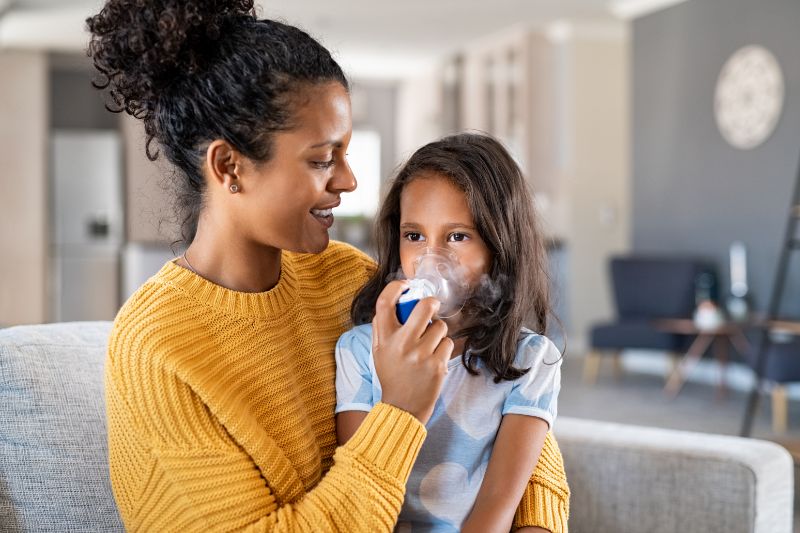There are a wide range of different types of viruses that can be caught. It is important to understand each common type of virus, what the symptoms are, how it spreads, and how it is treated. If you think you have a virus, please come into Carolina Urgent Care for treatment.
Influenza Virus (Flu)
The flu can make you feel very sick, with a fever, cough, sore throat, body aches, and tiredness.
The flu virus spreads when someone who has the flu coughs, sneezes, or talks, sending tiny droplets into the air. If you're close by, you can breathe these in and get sick.
The flu can be treated with antiviral medications such as oseltamivir (Tamiflu), zanamivir (Relenza), peramivir (Rapivab), or baloxavir (Xofluza). These medications can reduce the risk of severe illness and shorten the duration of symptoms.
Respiratory Syncytial Virus (RSV)
RSV usually causes mild, cold-like symptoms, but it can also lead to serious problems, especially for babies and older adults. Symptoms can include fever, cough, and trouble breathing.
RSV spreads like the flu through tiny droplets in the air when a sick person coughs or sneezes. It can also spread if you touch a surface that has the virus on it and then touch your face.
Most RSV infections go away on their own in a week or two. However, severe cases may require hospitalization. In some cases, medication may be used to decrease the severity of the symptoms.
Rhinovirus
Rhinovirus is the most common cause of the common cold. Symptoms can include a runny nose, sneezing, and a sore throat.
Rhinovirus spreads through the air and by direct contact with a person who has a cold or by touching objects and surfaces that have the virus on them.
There's no specific treatment for rhinovirus. Most people recover on their own within 7 to 10 days. However, over-the-counter cold remedies can help alleviate symptoms such as a runny nose, congestion, and body aches.
Coronavirus
Coronavirus causes COVID-19, which can have a range of symptoms. Some people might not feel sick at all, while others can get very sick. Symptoms can include fever, cough, and difficulty breathing.
Coronavirus spreads mainly from person to person, usually through respiratory droplets from coughing, sneezing, or talking. It can also spread by touching a surface or object that has the virus on it, then touching your mouth, nose, or eyes.
Treatment for COVID-19 can vary depending on the severity of the symptoms. Mild cases can often be managed at home with rest and hydration. For severe cases, hospitalization may be required, and medications such as remdesivir and dexamethasone may be used.
Parainfluenza Virus
Like most respiratory viruses, the Parainfluenza virus presents common cold symptoms such as a runny or stuffy nose, cough, and fever. In severe cases, it can cause croup (a barking cough) in children and bronchitis or pneumonia in adults.
The Parainfluenza virus spreads through respiratory droplets when an infected person coughs or sneezes. It can also spread by touching a surface contaminated with the virus and then touching your mouth, nose, or eyes.
While there's no specific antiviral treatment for Parainfluenza, usually rest, hydration, and over-the-counter medication to relieve symptoms can help. If symptoms become severe, seek medical attention immediately.
Adenovirus
Adenovirus can cause a wide range of illnesses, such as cold-like symptoms, sore throat, bronchitis, and diarrhea. In rare cases, it can lead to severe conditions like pneumonia or neurological disease.
Adenovirus spreads through close personal contact, like shaking hands, coughing, sneezing, or touching a surface with adenoviruses on it and then touching your mouth, nose, or eyes.
There's no specific treatment for an adenovirus infection. Like many viruses, rest, hydration, and over-the-counter medications are recommended. Severe cases may require hospitalization.
Human Metapneumovirus (hMPV)
hMPV can cause cold-like symptoms, including fever, sore throat, and cough. In severe cases, it can lead to bronchitis and pneumonia.
hMPV spreads through close contact with an infected person or by touching a surface or object contaminated with the virus.
There's no specific antiviral medication for hMPV. Treatment mainly consists of managing symptoms, staying hydrated, and resting. Seek medical care if symptoms worsen.
Enterovirus
Enterovirus can cause fever, runny nose, sneezing, and muscle aches. In severe cases, it could lead to viral conjunctivitis, hand-foot-and-mouth disease, or viral meningitis.
Enterovirus spreads through close contact with an infected person or by touching a surface or object contaminated with the virus.
There's no specific treatment for enterovirus. Most people recover by simply treating symptoms. However, severe cases may require hospitalization.
Remember, at Carolina Urgent Care, we're here to help you understand and manage your symptoms. If you're feeling unwell, don't hesitate to reach out to us. We're committed to providing you with quality healthcare when you need it the most.


